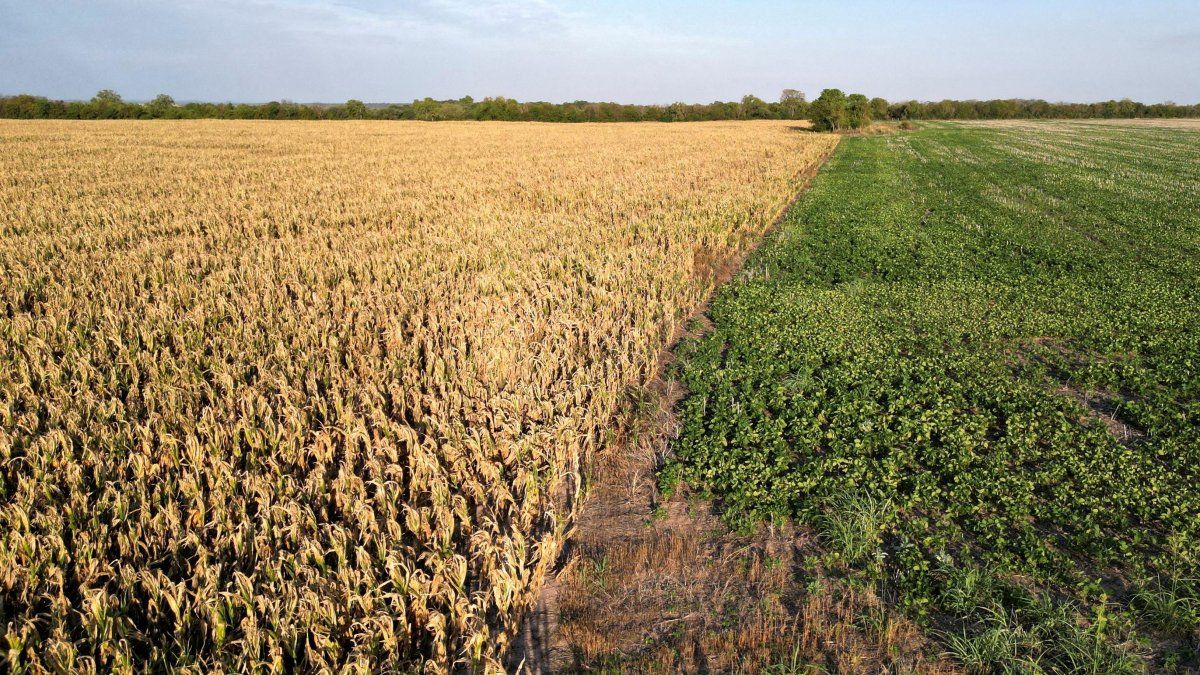One of the points of debate within the framework of the omnibus law that the Government sent to Congress is around the increase in withholdings. Specifically, to those referred to agricultural sector. The thing is that one of the articles establishes the increase in the rate for all soybean byproductswhich could increase primaryization in exports.
Specific, The bill seeks to raise the export duty rate for all soy by-products to 33%., which currently pay 31%. In this way, the DEX would be unified with unprocessed beans, which today are taxed at 33%. It also plans to raise withholdings for wheat and corn to 15%, which are currently taxed at 12%.
From the sector they expressed their rejection of this measure. “The loss in the withholding differential affects one of the most competitive sectors in Argentinathe soybean processing agroindustry, and once again positions our country as a benefactor of the export of agricultural commodities (primarization of exports) instead of promoting exports with greater added value,” they highlight.
This is not a minor fact since the oilseed-cereal complex, including biodiesel and its derivatives, contributed 51% of Argentina’s total exports and 7 out of every 10 dollars in 2023. net that they entered.
Primarization and foreign exchange income
In this context, it is estimated that a greater primarization of exports would reduce foreign exchange earnings. From the sector they estimate that “Argentina will lose between US$1,700 and US$2,000 million in foreign exchange income as the volumes of exports of industrialized soybean and sunflower products fall.“, while “the national government will notice a drop in the collection of export duties from the first sector that contributes tax revenue.”
For example, in a context marked by drought, In 2023, exports of oils and byproducts fell to a lesser extent than grains: while the decline in primary products was 46%, in by-products the decline was 29.5%. To alleviate the impacts of the drought, the industry even had to import more soybeans from Paraguay to process it.
dollar-soybean.jpg
Depositphotos
“The tariff differential on soybeans compared to by-products, in favor of the latter, contributed to the generation of the industrialization pole that we have today. “Removing it creates a problem in that sense,” he explained to Ámbito. Roman Dante, professor and researcher at the Center for Agribusiness and Food of the Austral University.
“I understand that those who advocate removing it point out that it is a differential that remains for the industry, but in reality, thanks to this better margin, the industry pays better values to the producer, so the farmer is also harmed,” he added. the specialist.
In this sense, according to sector estimates, if the increase in export duties for milling products is realized, Producers will see their income reduced by around US$400 million annually.
One thing to keep in mind is that with better weather forecasts, higher production is estimated for this year. “Last year we worked at an average level of use of installed capacity that was a historical minimum: 35%. Normally we are around 60% and this year we should be at more normal levels,” Romano noted.
Withholdings: the agricultural request to deputies
In the context of the debate on the Omnibus Law, the Chamber of the Oil Industry (CIARA) sent the deputies a statement in which they questioned, above all, article 202 of the bill, which increases export duties from 31% to 33% for industrialized soy products, “which are the main source of foreign exchange income for the country.”
“The Government wrongly expects to increase its tax revenues, but does not know that the tax increase will cause less soybean grinding, with the consequent reduction in exports of industrialized goods. This situation will generate a drop in foreign currency income and therefore tax revenues.”says the text.
And he highlights that “This measure will promote a primarization of sales abroad, by generating benefits for companies that do not process in Argentina and sell soybeans to a single global buyer, China.”. “With the aggravating factor that the Asian country prefers the quality of Brazilian soybeans due to its higher level of protein and, therefore, will result in lowering the price of Argentine soybeans,” the text detailed.
“Argentina will lose markets with greater added value compared to its competitors (Brazil and the United States) and investments will be promoted in countries that today are the destination of our exports, so that they themselves process the soybeans instead of doing it in ours,” he stressed. the text.
Source: Ambito




